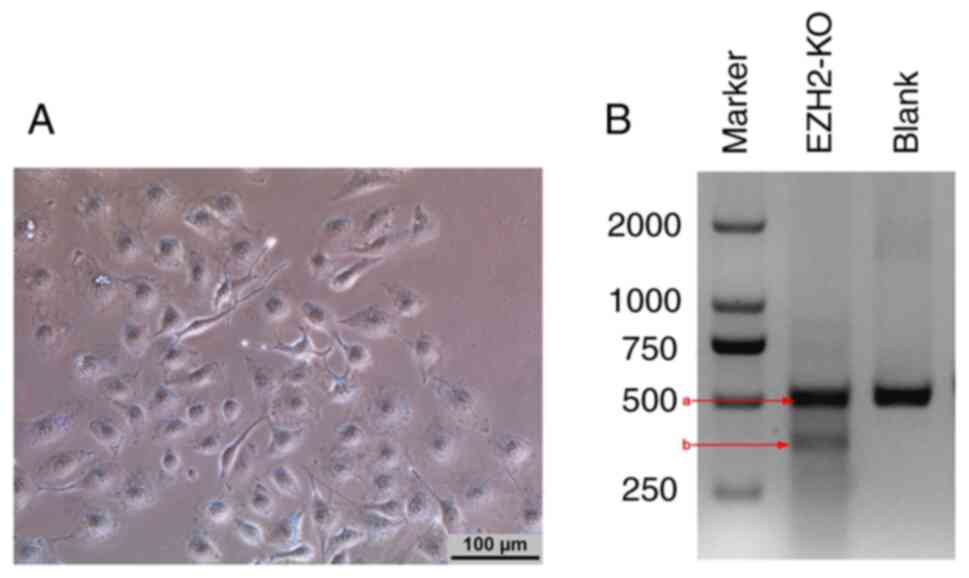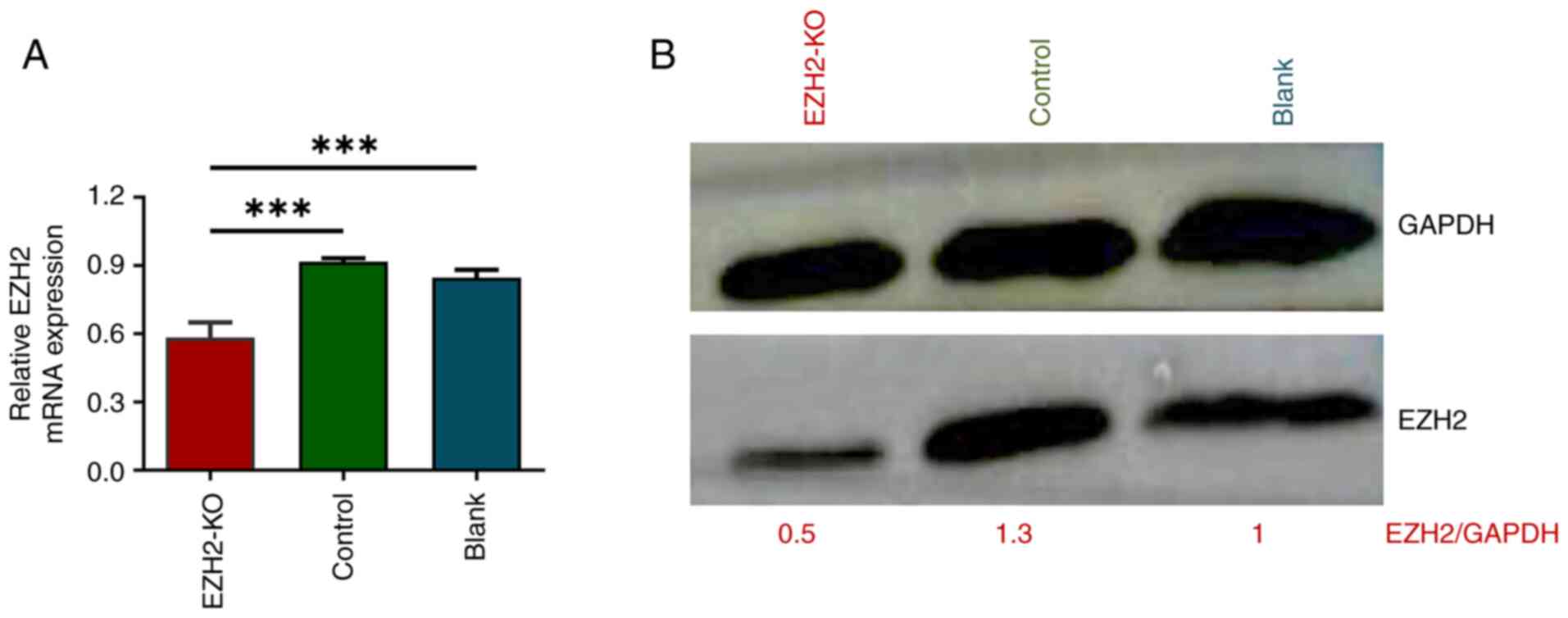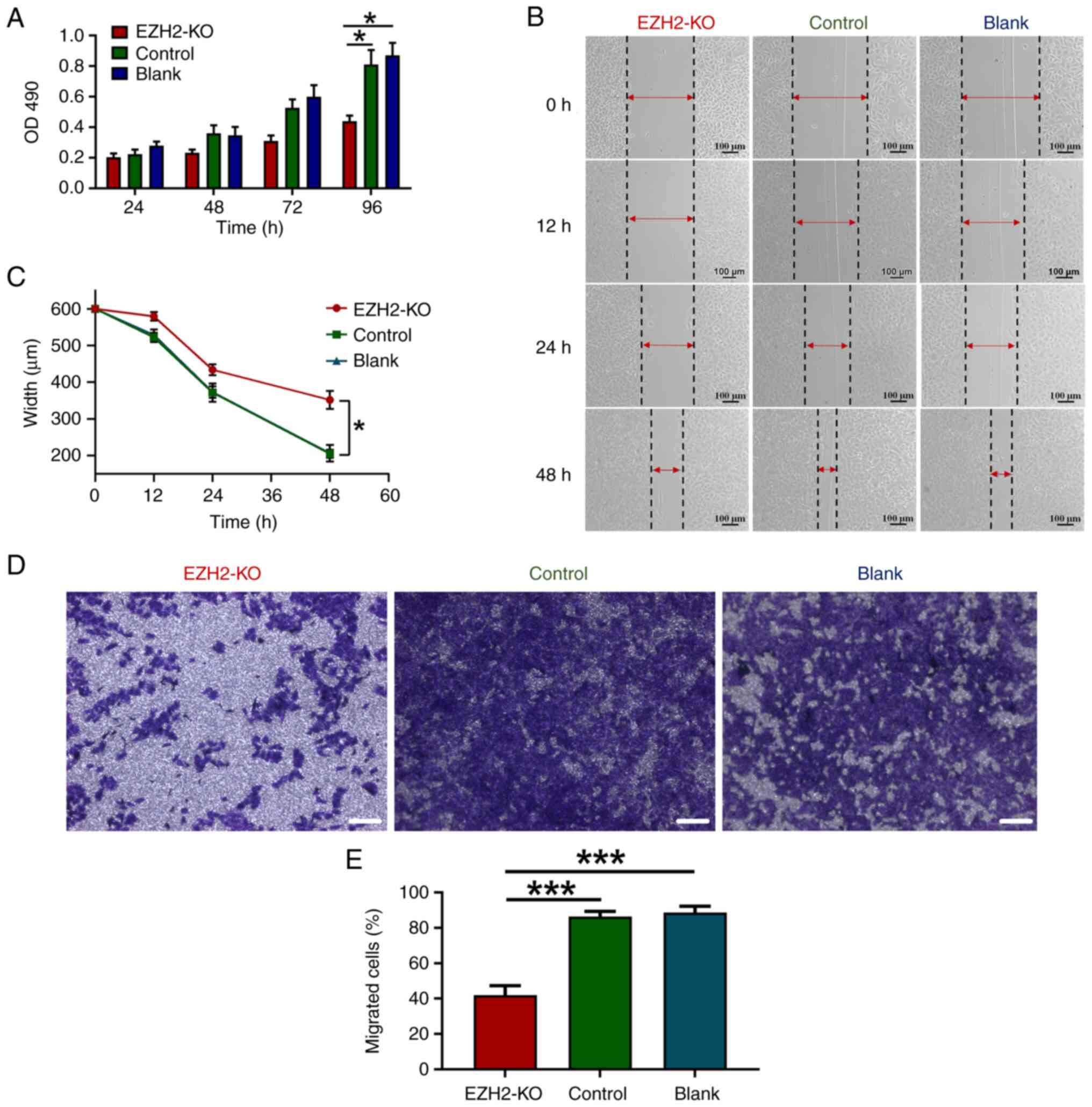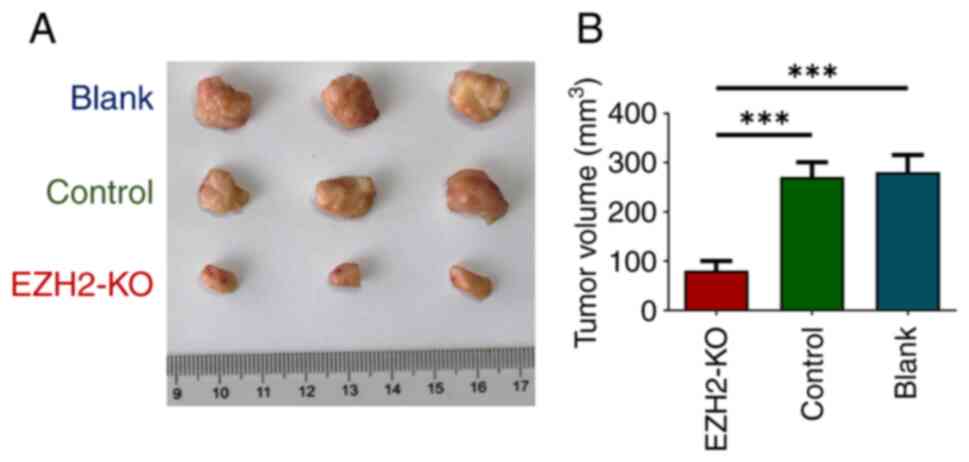|
1
|
Siegel RL, Miller KD and Jemal A: Cancer
statistics, 2020. CA Cancer J Clin. 70:7–30. 2020. View Article : Google Scholar : PubMed/NCBI
|
|
2
|
Ismail-Khan R and Bui MM: A review of
triple-negative breast cancer. Cancer Control. 17:173–176. 2010.
View Article : Google Scholar : PubMed/NCBI
|
|
3
|
Darbeheshti F, Izadi P, Razavi ANE,
Yekaninejad MS and Tavakkoly BJ: Comparison of BRCA1 expression
between triple-negative and luminal breast tumors. Iran Biomed J.
22:210–214. 2018.PubMed/NCBI
|
|
4
|
Costa RLB and Gradishar WJ:
Triple-negative breast cancer: Current practice and future
directions. J Oncol Pract. 13:301–303. 2017. View Article : Google Scholar : PubMed/NCBI
|
|
5
|
Wu X, Baig A, Kasymjanova G, Kafi K,
Holcroft C, Mekouar H, Carbonneau A, Bahoric B, Sultanem K and
Muanza T: Pattern of local recurrence and distant metastasis in
breast cancer by molecular subtype. Cureus. 8:e9242016.PubMed/NCBI
|
|
6
|
Bianchini G, Balko JM, Mayer IA, Sanders
ME and Gianni L: Triple-negative breast cancer: Challenges and
opportunities of a heterogeneous disease. Nat Rev Clin Oncol.
13:674–690. 2016. View Article : Google Scholar : PubMed/NCBI
|
|
7
|
Jennifer AD and Emmanuelle C: The new
frontier of genome engineering with CRISPR-Cas9. Science.
346:12580962014. View Article : Google Scholar : PubMed/NCBI
|
|
8
|
Kurata M, Yamamoto K, Moriarity BS,
Kitagawa M and Largaespada DA: CRISPR/Cas9 library screening for
drug target discovery. J Hum Genet. 63:179–186. 2018. View Article : Google Scholar : PubMed/NCBI
|
|
9
|
Liu Q, Fan D, Adah D, Wu Z, Liu R, Yan Q,
Zhang Y, Du ZY, Wang D, Li Y, et al: CRISPR/Cas9-mediated hypoxia
inducible factor-1α knockout enhances the antitumor effect of
transarterial embolization in hepatocellular carcinoma. Oncol Rep.
40:2547–2557. 2018.PubMed/NCBI
|
|
10
|
Suemura S, Kodama T, Myojin Y, Yamada R,
Shigekawa M, Hikita H, Sakamori R, Tatsumi T and Takehara T: CRISPR
loss-of-function screen identifies the hippo signaling pathway as
the mediator of regorafenib efficacy in hepatocellular carcinoma.
Cancers (Basel). 11:13622019. View Article : Google Scholar : PubMed/NCBI
|
|
11
|
Wang H, Yang H, Shivalila CS, Dawlaty MM,
Cheng AW, Zhang F and Jaenisch R: One-step generation of mice
carrying mutations in multiple genes by CRISPR/Cas-mediated genome
engineering. Cell. 153:910–918. 2013. View Article : Google Scholar : PubMed/NCBI
|
|
12
|
Bremer SCB, Bittner G, Elakad O, Dinter H,
Gaedcke J, König AO, Amanzada A, Ellenrieder V, Freiherr VHA,
Ströbel P and Bohnenberger H: Enhancer of zeste homolog 2
(EZH2) is a marker of high-grade neuroendocrine neoplasia in
gastroenteropancreatic and pulmonary tract and predicts poor
prognosis. Cancers (Basel). 14:28282022. View Article : Google Scholar : PubMed/NCBI
|
|
13
|
Yang Z, Wei B, Qiao A, Yang P, Chen W,
Zhen D and Qiu X: A novel EZH2/NXPH4/CDKN2A axis is involved in
regulating the proliferation and migration of non-small cell lung
cancer cells. Biosci Biotechnol Biochem. 86:340–350. 2021.
View Article : Google Scholar : PubMed/NCBI
|
|
14
|
Schmidt A, Behrendt L, Eybe J, Warmann SW,
Schleicher S, Fuchs J and Schmid E: The effect of direct and
indirect EZH2 inhibition in rhabdomyosarcoma cell lines. Cancers
(Basel). 14:412021. View Article : Google Scholar : PubMed/NCBI
|
|
15
|
Alzrigat M, Jernberg-Wiklund H and Licht
JD: Targeting EZH2 in multiple myeloma-multifaceted anti-tumor
activity. Epigenomes. 2:162018. View Article : Google Scholar : PubMed/NCBI
|
|
16
|
Hussein YR, Sood AK, Bandyopadhyay S,
Albashiti B, Semaan A, Nahleh Z, Roh J, Han HD, Lopez-Berestein G
and Ali-Fehmi R: Clinical and biological relevance of enhancer of
zeste homolog 2 in triple-negative breast cancer. Hum Pathol.
43:1638–1644. 2012. View Article : Google Scholar : PubMed/NCBI
|
|
17
|
Chien YC, Liu LC, Ye HY, Wu JY and Yu YL:
EZH2 promotes migration and invasion of triple-negative breast
cancer cells via regulating TIMP2-MMP-2/-9 pathway. Am J Cancer
Res. 8:422–434. 2018.PubMed/NCBI
|
|
18
|
Vukmirovic D, Seymour C and Mothersill C:
Deciphering and simulating models of radiation genotoxicity with
CRISPR/Cas9 systems. Mutat Res Rev Mutat Res. 783:1082982020.
View Article : Google Scholar : PubMed/NCBI
|
|
19
|
BeltCappellino A, Majerciak V, Lobanov A,
Lack J, Cam M and Zheng ZM: CRISPR/Cas9-mediated knockout and in
situ inversion of the ORF57 gene from all copies of the kaposi's
sarcoma-associated herpesvirus genome in BCBL-1 cells. J Virol.
93:e00628–e00619. 2019. View Article : Google Scholar : PubMed/NCBI
|
|
20
|
Reed LJ and Muench H: A simple method of
estimating fifty per cent endpoint. Am J Epidemiol. 27:493–497.
1938. View Article : Google Scholar
|
|
21
|
Sentmanat MF, Peters ST, Florian CP,
Connelly JP and Pruett-Miller SM: A survey of validation strategies
for CRISPR-Cas9 editing. Sci Rep. 8:8882018. View Article : Google Scholar : PubMed/NCBI
|
|
22
|
Livak KJ and Schmittgen TD: Analysis of
relative gene expression data using real-time quantitative PCR and
the 2(−Delta Delta C(T)) method. Methods. 25:402–408. 2001.
View Article : Google Scholar : PubMed/NCBI
|
|
23
|
Kawai S, Takagi Y, Kaneko S and Kurosawa
T: Effect of three types of mixed anesthetic agents alternate to
ketamine in mice. Exp Anim. 60:481–487. 2011. View Article : Google Scholar : PubMed/NCBI
|
|
24
|
Derakhshan F and Reisfilho JS:
Pathogenesis of triple-negative breast cancer. Ann Rev Pathol.
17:181–204. 2022. View Article : Google Scholar : PubMed/NCBI
|
|
25
|
Hanson MA and Godfrey KM: Genetics:
Epigenetic mechanisms underlying type 2 diabetes mellitus. Nat Rev
Endocrinol. 11:261–262. 2015. View Article : Google Scholar : PubMed/NCBI
|
|
26
|
Zhang DY, Sun QC, Zou XJ, Song Y, Li WW,
Guo ZQ, Liu SS, Liu L and Wu DH: Long noncoding RNA UPK1A-AS1
indicates poor prognosis of hepatocellular carcinoma and promotes
cell proliferation through interaction with EZH2. J Exp Clin Cancer
Res. 39:2992020. View Article : Google Scholar
|
|
27
|
Guo B, Tan X and Cen H: EZH2 is a negative
prognostic biomarker associated with immunosuppression in
hepatocellular carcinoma. PLoS One. 15:e02421912020. View Article : Google Scholar : PubMed/NCBI
|
|
28
|
Sun S, Gao J, Zhou S, Li Y, Wang Y, Jin L,
Li J, Liu B, Zhang B, Han S, et al: A novel circular RNA circ-LRIG3
facilitates the malignant progression of hepatocellular carcinoma
by modulating the EZH2/STAT3 signaling. J Exp Clin Cancer
Res. 39:2522020. View Article : Google Scholar : PubMed/NCBI
|
|
29
|
Zhang J, Chen W, Ma W, Han C, Song K, Kwon
H and Wu T: EZH2 promotes cholangiocarcinoma development and
progression through histone methylation and microRNA-mediated
down-regulation of tumor suppressor genes. Am J Pathol.
192:1712–1724. 2022. View Article : Google Scholar : PubMed/NCBI
|
|
30
|
Wang SW, Gao C, Zheng YM, Yi L, Lu JC,
Huang XY, Cai JB, Zhang PF, Cui YH and Ke AW: Current applications
and future perspective of CRISPR/Cas9 gene editing in cancer. Mol
Cancer. 21:572022. View Article : Google Scholar : PubMed/NCBI
|
|
31
|
Ishino Y, Shinagawa H, Makino K, Amemura M
and Nakata A: Nucleotide sequence of the iap gene, responsible for
alkaline phosphatase isozyme conversion in Escherichia coli, and
identification of the gene product. J Bacteriol. 169:5429–5433.
1987. View Article : Google Scholar : PubMed/NCBI
|
|
32
|
Bolotin A, Quinquis B, Sorokin A and
Ehrlich SD: Clustered regularly interspaced short palindrome
repeats (CRISPRs) have spacers of extrachromosomal origin.
Microbiology (Reading). 151:2551–2561. 2005. View Article : Google Scholar : PubMed/NCBI
|
|
33
|
Pourcel C, Salvignol G and Vergnaud G:
CRISPR elements in Yersinia pestis acquire new repeats by
preferential uptake of bacteriophage DNA and provide additional
tools for evolutionary studies. Microbiology (Reading).
151:653–663. 2005. View Article : Google Scholar : PubMed/NCBI
|
|
34
|
Cong L, Ran FA, Cox D, Lin S, Barretto R,
Habib N, Hsu PD, Wu X, Jiang W, Marraffini LA and Zhang F:
Multiplex genome engineering using CRISPR/Cas Systems. Science.
339:819–823. 2013. View Article : Google Scholar : PubMed/NCBI
|
|
35
|
Feng Y, Sassi S, Shen JK, Yang X, Gao Y,
Osaka E, Zhang J, Yang S, Yang C, Mankin HJ, et al: Targeting CDK11
in osteosarcoma cells using the CRISPR-Cas9 system. J Orthop Res.
33:199–207. 2015. View Article : Google Scholar : PubMed/NCBI
|
|
36
|
Orlando V: Polycomb, epigenomes, and
control of cell identity. Cell. 112:599–606. 2003. View Article : Google Scholar : PubMed/NCBI
|
|
37
|
Morel KL, Sweeney CJ and Ellis L:
Targeting EZH2 and PI3K/mTOR for a novel combination therapeutic
strategy in aggressive variant prostate cancer. Mol Cancer Res.
18:B292020. View Article : Google Scholar : PubMed/NCBI
|
|
38
|
Zhang X, Ma X, Wang Q and Kong Z: EZH2
targeting to improve the sensitivity of acquired radio-resistance
bladder cancer cells. Transl Oncol. 16:1013162022. View Article : Google Scholar : PubMed/NCBI
|
|
39
|
Tiffen J, Gallagher SJ, Filipp F,
Gunatilake D, Emran AA, Cullinane C, Dutton-Register K, Aoude L,
Hayward N, Chatterjee A, et al: EZH2 Cooperates with DNA
methylation to downregulate key tumor suppressors and IFN gene
signatures in melanoma. J Invest Dermatol. 140:2442–24544. 2020.
View Article : Google Scholar : PubMed/NCBI
|
|
40
|
Dale B, Anderson C, Park K, Kaniskan HÜ,
Ma A, Shen Y, Zhang C, Xie L, Chen X, Yu X and Jin J: Targeting
triple-negative breast cancer by a novel proteolysis targeting
chimera degrader of enhancer of zeste homolog 2. ACS Pharmacol
Transl Sci. 5:491–507. 2022. View Article : Google Scholar : PubMed/NCBI
|
|
41
|
Varambally S, Dhanasekaran SM, Zhou M,
Barrette TR, Kumar-Sinha C, Sanda MG, Ghosh D, Pienta KJ, Sewalt
RGAB, Otte AP, et al: The polycomb group protein EZH2 is
involved in progression of prostate cancer. Nature. 419:624–629.
2002. View Article : Google Scholar : PubMed/NCBI
|
|
42
|
Takawa M, Masuda K, Kunizaki M, Daigo Y,
Takagi K, Iwai Y, Cho H, Toyokawa G, Yamane Y, Maejima K, et al:
Validation of the histone methyltransferase EZH2 as a
therapeutic target for various types of human cancer and as a
prognostic marker. Cancer Sci. 102:1298–1305. 2011. View Article : Google Scholar : PubMed/NCBI
|
|
43
|
Bachmann IM, Halvorsen OJ, Collett K,
Stefansson IM, Straume O, Haukaas SA, Salvesen HB, Otte AP and
Akslen LA: EZH2 expression is associated with high proliferation
rate and aggressive tumor subgroups in cutaneous melanoma and
cancers of the endometrium, prostate, and breast. J Clin Oncol.
24:268–273. 2006. View Article : Google Scholar : PubMed/NCBI
|


















